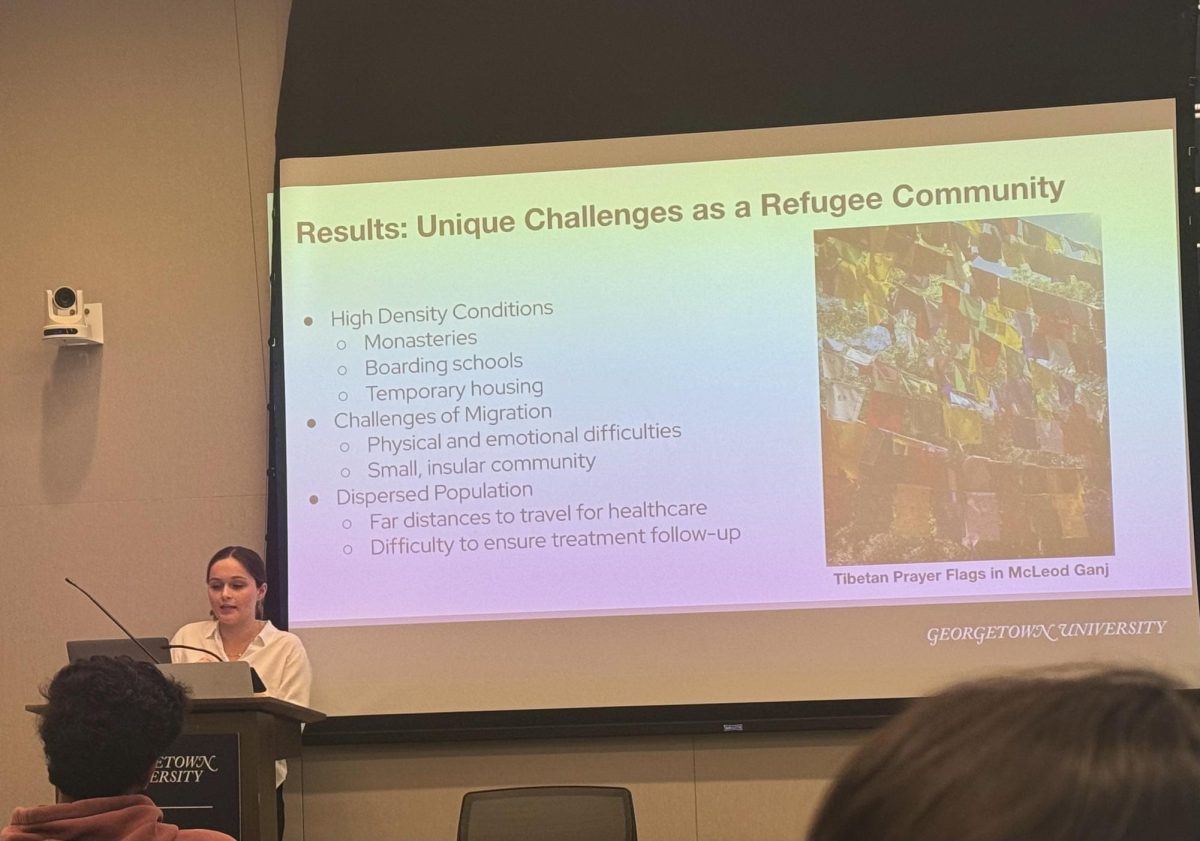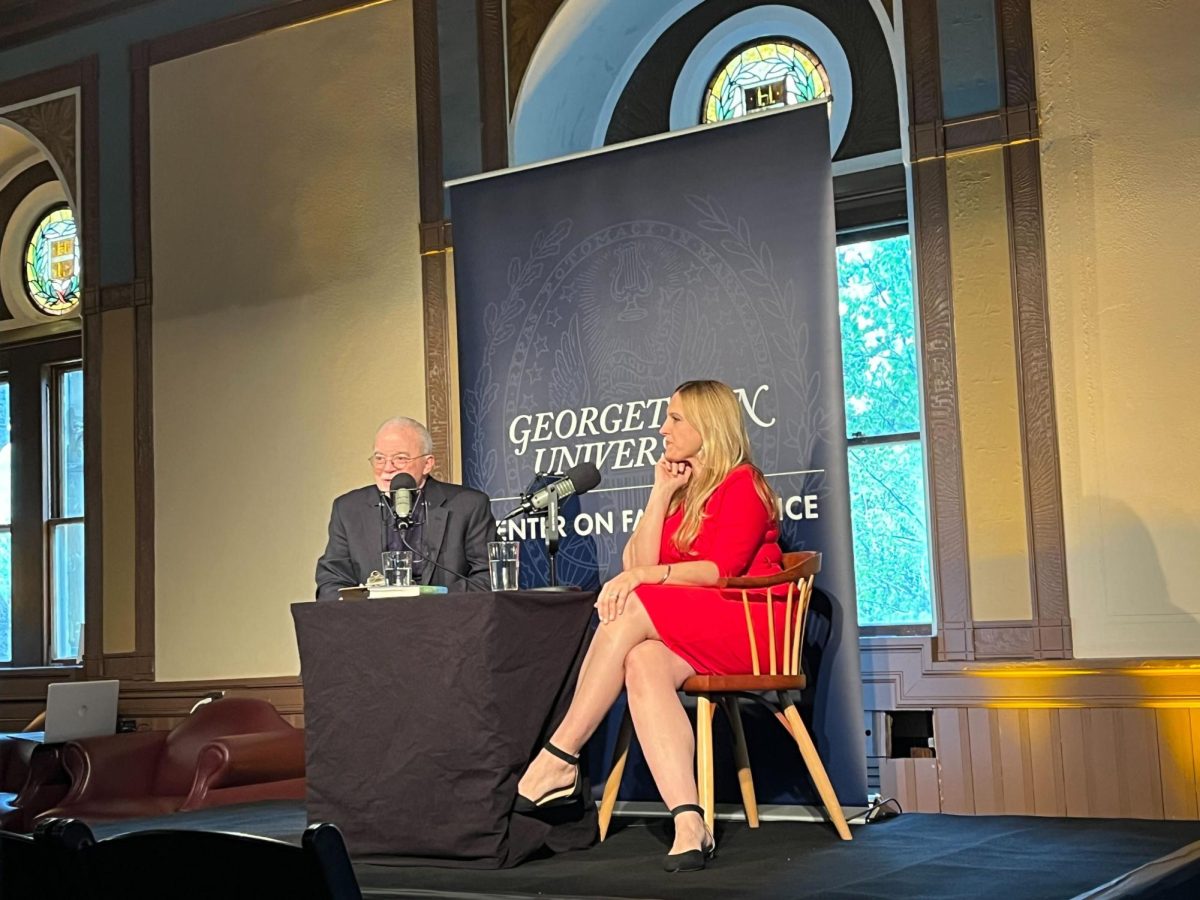Entrepreneurs seek to transform ways of doing business to create better results. But we can re-engineer how entrepreneurship is taught at Georgetown University so it can better meet the real problems entrepreneurs face when they leave the classroom to start companies.
Georgetown has made real progress in the teaching of entrepreneurship. Professors Jeff Reid and Alyssa Lovegrove have built many new entrepreneurship programs in the McDonough School of Business. Georgetown University Law Center Dean William Treanor has increased business courses, and at the School of Foreign Service, years ago, pioneers like Ted Moran, Rosie O’Neil and Dale Murphy saw the value of entrepreneurship for solving pressing global problems. But we are still a few fries short of a Happy Meal.
Often, entrepreneurship is taught by having students create a company concept, a business plan and a slide presentation for investors. But when entrepreneurs leave the classroom and begin business, they face a whole new set of questions not usually covered in business classes. Many of these are legal issues such as employment contracts, finding the right lawyer, intellectual property and skeptical investors.
Successful entrepreneurship takes more than business skills. Entrepreneurs must weave a seamless web of law, business, human relations and — most importantly — perseverance. Perseverance is learning to deal with continual failure and seeing failure as the new success. Entrepreneurs must view failure as just another, more painful way of learning about their products and market. A reporter once asked Thomas Edison about his light bulb, “How did it feel to fail 1,000 times?” Edison replied, “I didn’t fail 1,000 times. The light bulb was an invention with 1,000 steps.”
Graduating entrepreneurs would be better prepared if entrepreneurship courses covered more of these subjects. Then, students would be ready to address real-world problems when they leave campus.
GBUS 492, “Law, Business and Entrepreneurship,” which recently hosted a pitch competition, is a new, experimental course in the SFS’ Landegger Program in International Business Diplomacy. It starts like a traditional course in entrepreneurship: Students create a company, business plan and investor presentation; they also learn from readings in classic startup books, such as “The Lean Startup” by Eric Ries.
But then, the course attaches practical, mini-course modules — combined with continuous student feedback — to help developing entrepreneurs deal with issues they will immediately face upon starting a business, such as what kind of company to create, how to protect their intellectual property and what an employment contract looks like. Students learn basic contract law; contrary to what many students think, contracts do not have to be in writing, so be careful what you say. The class also includes active learning, such as role-playing to learn negotiation tactics — and how to get out of a bad deal.
In short, this class is designed to prepare students for the legal, human relations and real-world problems entrepreneurs will surely confront when they start their businesses.
In addition, Georgetown should include practical legal instruction in its entrepreneurship courses. Over my last three decades as a corporate lawyer, entrepreneur and investor, I have seen many startup businesses crumble under the weight of easily avoidable problems. A little legal advice can stop entrepreneurs from giving away too much equity to partners or failing to put contractual responsibilities in writing. Lawyers — and legal advice — prevent problems before they are beyond repair.
Next, the university should also present entrepreneurship as a career option to students in their freshman year, alongside Wall Street and other recruiters. Inviting alumni to campus to discuss careers in entrepreneurship would remind business-minded students that they could be their own boss.
Last, the university should build a stronger alumni job pipeline for entrepreneurs. The MSB and Law Center effectively connect their students to graduates; the SFS should follow this model. If SFS alumni are interested in hiring high-quality job recruits from their alma mater, they should set aside part- and full-time jobs for SFS students interested in entrepreneurship.
Georgetown should be the best place in the world to study global entrepreneurship: We have great law, business and international relations schools; we are located in Washington, D.C.; we are an international business hub. So, we should keep reinventing entrepreneurship at Georgetown to help graduates hit the ground running to help solve tough global development problems like health, clean water, village power and sustainability.
David Muchow graduated from the School of Foreign Service in 1966 and GULC in 1971. He is now an adjunct assistant professor in the School of Foreign Service.


















